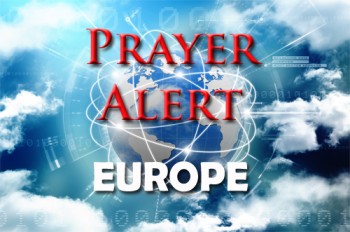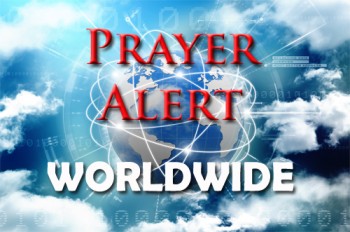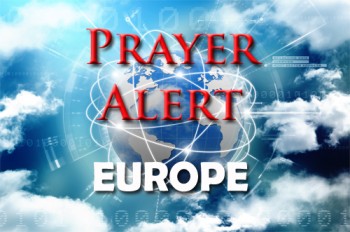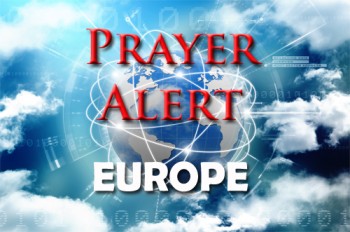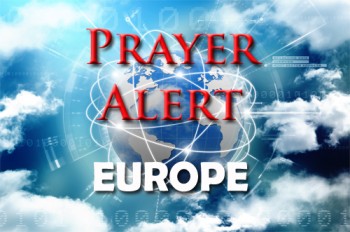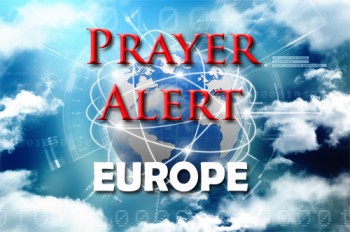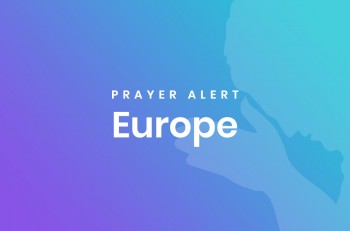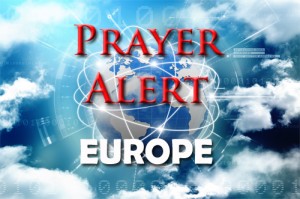Displaying items by tag: Europe
France: jihadists from Syria
The US decision to remove 2,000 troops from Syria worries France, which has 200 special forces in areas wrested from IS by the Syrian Democratic Forces (SDF). US forces ferried supplies to French commandos, and helped evacuate French wounded. But the great dilemma is what to do with the 130 French jihadists held by the SDF (along with 770 from other countries). The SDF complains of the burden of guarding so many foreign jihadists, and wants France to repatriate its 130 nationals. The numbers could swell. Another 250 French jihadists are held in Iraq. Many of the detainees are women and children deeply implicated in terrorism. The French prison systems cannot cope with a massive influx of returning jihadists. And if they are tried, it could be difficult to find evidence against them. There are already 150 returnees in the prisons, with thirty due to be freed this year. French intelligence has repeatedly been unable to prevent terrorists on watchlists from staging attacks.
Russian and US treaty breaches
In 1987 a treaty was agreed on by Mikhail Gorbachev and Ronald Reagan. Russian foreign minister Sergey Lavrov has said that the US has been violating the treaty since 1999 by testing unmanned aerial combat vehicles with the same characteristics as land-based cruise missiles banned by the treaty, and has used ballistic target missiles for testing missile defence systems. Meanwhile the US said that it would exit the landmark Cold War nuclear missile treaty because of purported violations by Russia. Washington says that a new Russian medium-range missile system breaches the treaty, although US officials also have an eye on China as the 1987 pact does not constrain the rising Asian power. Trump said the US was suspending its obligations under the INF treaty and starting a process to withdraw in six months’ time. See
Spread of sharia law
In some European territories sharia law is applied, challenging human rights. Greek Muslims in Western Thrace use sharia judicial power to rule on disputes concerning inheritance. Muslims can choose between a mufti or Greek courts. In the UK, the ‘Islamic Sharia Council’ is an independent arbitration tribunal issuing private law decisions and able to grant Islamic divorces. These divorces may also be included in a civil procedure. There are believed to be some thirty sharia councils, affiliated to local mosques. In Russia’s Northern Caucasus: family and property matters are usually judged under sharia law under the guise of ‘tradition’. Women and girls are victims of violence and discriminatory practices such as early marriage, abduction for forced marriage, ‘honour’ killings, female genital mutilation and polygamy, despite the provisions of Russian federal law. In Turkey Muslim religious education is compulsory in schools. The government publicly favours a Muslim viewpoint, linking Turkish nationality with Sunni Islam.
Migrants needing Christ’s compassion
Millions are fleeing tyranny of war, famine, and heartache in the largest movement of people in modern history since WWII. For most, Europe offers the only hope of safety, and many risk the very real threat of death on their journeys. Often these people are seen as a problem, and while our enemy can use people to kill, steal, and destroy, God sees each one as a unique and loved creation. Christian mission agencies working in refugee camps and across Europe want to introduce each refugee to the God who loves them. Meanwhile many European countries are rejecting them, the latest being the Dutch government who refused to accept 47 refugees currently on a ship run by a humanitarian group who rescued them off the Libyan coast over a week ago. Since then it has been sailing through high winds and seven metre-high waves.
France: protests against Macron continue
Approximately 84,000 protested for the tenth successive weekend, despite President Macron spending hours in rural town halls debating with disgruntled mayors in a counter-offensive. The ‘yellow vests’ didn’t demobilise. In Paris, several thousand marched in freezing temperatures, many waving placards calling for Macron to resign or condemning police violence. The Paris rally and several others ended with police, tear gas and water cannon dispersing hooded protesters throwing paving stones and bottles. Macron, who had not previously held public office, was elected at the head of a grassroots movement going door-to-door asking people what kind of changes were needed. But once in office he has adopted a top-down approach more in keeping with post-war president Charles de Gaulle. He has defended his reforms vigorously in debates, while promising to be open to making adjustments. A protester, echoing the yellow vests' top demands, said, ‘What I want is citizen-sponsored referendums so that citizens can repeal laws, oversee spending, and recall senior officials or even the president.’
Romania: fragile EU presidency
Romania has taken over the presidency of the EU for six months. Historically Romanians have been under foreign occupation for most of their existence, but have kept their linguistic identity and Christian faith in spite of rulers with different cultures and religions. Currently Romania is governed by the Social Democratic Party, which contains numerous corrupt leaders who have changed the laws so that they cannot be taken to court. On an economic level, they have imposed some populist measures that have put the country in a difficult situation. Because of this there have been numerous demonstrations by people desiring integrity and justice in their country. Companies are going bankrupt, resources are depleted, and over five million people have emigrated. Romania is being threatened by Russia because she is strategically situated with access to the Black Sea. Meanwhile, President Klaus Johannis is a Christian, and the impact of Christians in society is growing.
Greece: snow hardship for refugees
Winter makes life in an improvised refugee camp even harder than it already is for asylum seekers - especially for the most vulnerable. Pregnant women, new-born babies, and the elderly, sleeping in tents without heating, are among hundreds exposed to worsening weather. Hours after a 24-year-old man from Cameroon was found dead at Moria refugee camp in Lesbos, an Oxfam report stated that hundreds of vulnerable people, including survivors of torture, ‘are being abandoned’ in substandard conditions. Oxfam said its concern is that there could be more deaths with the recent freezing weather and the poor preparations for winter in the camps. Every year conditions in and around the camps deteriorate further with the onset of winter because they are not equipped for cold temperatures, heavy rain or snowfall. Pray for those living in muddy bogs, burning anything they can find to keep warm to receive suitable accommodation, and medical support. See also
Netherlands: Nashville Statement
Evangelical Christians are living in a period of historic transition as Western culture becomes post-Christian and attempts a revision of faith values. By and large the spirit of our age no longer discerns or delights in the beauty of God’s design for human life. Many deny that God created human beings for His glory, and in our personal and physical design as male and female. After a group of 250 Dutch pastors signed the Nashville Statement (which promotes a biblical view of sexuality), they were met by strong opposition - even the Hague flew a rainbow flag in protest. The country’s public prosecution service is examining the statement to see if there is any basis for a criminal investigation against the pastors. Over recent days, the public outcry against them for their Christian convictions has been ferocious. Politicians and celebrities have publicly denounced them. See also
Killer winter storms
Brutal winter weather is battering Europe, with ‘significant and disruptive’ snow forecast to continue for up to two weeks. Snow trapped hundreds in Alpine regions, caused avalanches and flight delays, and worst of all hit dozens of refugees housed in tents in northern Greece as temperatures sank to -20C. There have been at least 13 deaths so far in Greece's islands. Poor visibility halted Norway’s attempts to find the bodies of four skiers presumed dead after a huge avalanche hit a valley. Romanian police found the frozen body of a 67-year-old man in a car park where temperatures were -24C. Austrian residents were housebound due to blocked roads, and some regions experienced power outages, closed schools, and buildings collapsing from snow-laden roofs. Many are bracing themselves for more snow, while others prepare for subsequent floods. See
Italy: using 'yellow vests' to shake up EU
Italy’s Five Star Movement is plotting with similar groups in Poland, Croatia, and Finland to shake up the EU and end Brussels control. Luigi di Maio, leader of the anti-establishment party, is meeting with a number of emerging movements across Europe to create a ‘group of direct democracy’ to challenge the ‘current crop of elitist EU parties’. He will also call on the so-called ‘yellow vest’ movement, which has threatened to sink Emmanuel Macron’s reign as French president, to help spearhead the people’s revolution in Brussels, according to Laura Agea, Five Star’s most senior figure in the Belgian capital. She said, ‘Our goal is to be decisive for the next European Parliament. We will focus on direct democracy, the health of citizens, fighting poverty, and defending the excellence of Made in Europe.’
